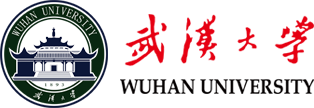Spatio-temporal evolution characteristics and driving mechanisms of Urban–Agricultural–Ecological space in ecologically fragile areas: A case study of the upper reaches of the Yangtze River Economic Belt, China
-
Impact Factor:
6.0
-
DOI number:
10.1016/j.landusepol.2024.107282
-
Affiliation of Author(s):
武汉大学
-
-
Journal:
Land Use Policy
-
Place of Publication:
ENGLAND
-
-
Key Words:
Ecologically fragile area
Urban–Agricultural–Ecological Space
Driving mechanism
Multi-scenario projection
The Yangtze River Economic Belt
-
Abstract:
Ecologically fragile areas, which are vulnerable to human disturbances, are facing development dilemmas due to
the contradiction between economic development and environmental degradation. Examining the driving
mechanism and future trends of land use transitions can inform territorial planning and land use policies to
address the contradiction. However, research into the mechanisms governing the interaction between ecological
and social factors driving land use transitions in ecologically fragile areas is currently limited. Considering the
Upper Reaches of the Yangtze River Economic Belt (URYREB), a typical ecologically fragile area in China, as an
example, this study discussed the spatio-temporal evolution characteristics and driving mechanisms of UrbanAgricultural-Ecological
Space. The results indicated that ecological factors inffuence the direction, location,
and scale of spatial evolution, while social factors dominate the direction and scale of spatial evolution. The
interaction between ecological and social elements drives spatial evolution due to the endogenous development
needs of the social-ecological system (SES), in conjunction with external policy guidance and economic development.
In the future, urban function space may continue to expand and threaten surrounding agricultural
function space, thus, corresponding land use policies are necessary to ensure food security. This study unveils the
impact of multifactor interactions on land use transitions and offers insights for optimizing territorial space
planning in ecologically fragile areas.
-
-
Co-author:
Ning Wang,Li Yin,Liming Bo
-
-
Indexed by:
Journal paper
-
Correspondence Author:
Shiyi Guo
-
Document Code:
107282
-
Discipline:
Engineering
-
-
Document Type:
J
-
Volume:
145
-
-
Page Number:
1-15
-
Number of Words:
15000
-
ISSN No.:
0264-8377
-
Translation or Not:
no
-
-
Date of Publication:
2024-07-26
-
Included Journals:
SCI、SSCI
-
Links to published journals:
https://www-sciencedirect-com-s.vpn.whu.edu.cn/science/article/abs/pii/S0264837724002357?via%3Dihub
Attachments:
1.202407 Land Use Policy 1-s2.0-S0264837724002357-main.pdf




